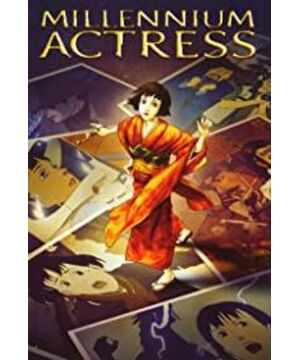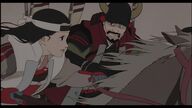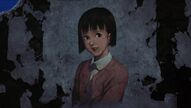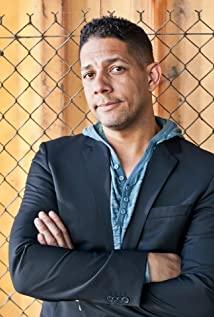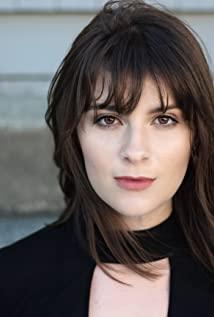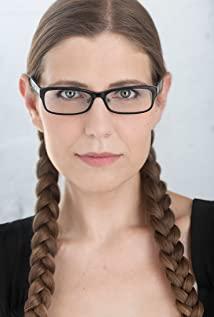LOTUS~What is the language of flowers? ~ Innocent, innocent and pure~
It would be too superficial to view this film as a simple romance.
The outline of the story will not be introduced, and those who have seen it need not say it. For those who haven't seen it, I highly recommend watching the original.
If you haven't seen the original film, you may better understand the connotation of the masterpiece "Millennium Actress" by reading this film review first.
For example, why did Chiyoko "fall in love at first sight" with the key painter?
For example, what do Chiyoko, the key painter, and director Tachibana have in common?
For example, does Chiyoko really know nothing about the artist's ending?
For example, in addition to the image of the lotus, which image is often ignored?
For example, what are the subtle changes in the movie?
Here is the text:
"What I really love is to follow his journey/self" (see two different translations)
This is the last sentence of the whole film, and it is also the sentence that most directly interprets the theme.
but why? Why would she like this journey, or herself in this journey?
Did she really not know that what she had been chasing was just an illusion?
Did she get carried away by love? Or are you too obsessed with your lover?
The answer to this may be what this film really wants to express.
"The company name is ~LOTUS~ I also like lotus flowers."
"I know this so I put the company name..."
"The ones in the garden behind the house are about to bloom, her flower language, you know?"
"I know, it's pure."
This is the conversation between Chiyoko and the president who came to interview at the beginning of the film.
The soundtrack of the film has two "LOTUS" songs, one of which is the ending song "Reincarnation [LOTUS-2]", several variations of which are used many times in the film. The first song "LOTUS" is said to be the source of director Jin Min's creation of "Millennium Actress", and it is also the reason why I decided to watch this film. So friends who haven't heard of it suggest to come and listen.
LOTUS - Shin Hirasawa
(I originally wanted to write it here and it ended, but the plot interpretation and detailed analysis were so eloquent that it reached as many as 5,000 words...)
"Where on earth did I make Miss Yongzi unhappy?"
Encouraged by Otaki, the director who wanted to get Chiyoko, Yoko stole the key to Chiyoko's soul. It wasn't until Chiyoko accidentally rediscovered the keys in her director husband's office that Yoko confessed her guilt.
"Because I'm jealous! Your youth. In order to pursue a man, you are always so young. In contrast, I'm a supporting role playing an old man as a foil. Now I don't have the energy to even hate you."
When Yoko was young, she was gorgeous and dazzling, but as she grew older and her beauty faded, she gradually reduced from the protagonist to Chiyoko's opponent, and finally could only serve as an older supporting role. Although she is not much older than Chiyoko (about ten years old), she is obviously aging faster than Chiyoko. In her opinion, it is the "magic of love" that keeps Chiyoko young forever.
But it is precisely because of her superficial understanding that many people mistakenly think that "Millennium Actress" is a false work that blindly pursues infatuation. Maybe they were hurt by love, maybe their realm stopped there. Because they don't understand what Chiyoko is looking for, and they won't know what Chiyoko got in it.
Why did Chiyoko spend half her life chasing a man she only met once?
And why did she fall in love with this man?
Really love at first sight? This is a second-rate romance novel, right? Many friends can't go further on the main point of the film because they don't understand the problem.
The answer is actually quite simple:
"LOTUS" ~ What is the language of flowers? - Innocent, innocent and pure.
Remember the conversation between the painter and Chiyoko in the warehouse? Not the "full moon" paragraph, but about the painting.
"I plan to finish this painting when I return to my hometown. My hometown will be covered with snow that stretches to the horizon in winter, and the horizon is endless. I want to set up an easel there and feel the biting cold while finishing this painting. Painting. Once you’re in that vast, snow-white landscape, it’s an incredible feeling of being on a distant planet.”
Imagining that scene, Chiyoko's heart was excited by the warmth and romance, she closed her eyes and said with a smile, "I really want to go there too." If you have seen it, you must watch the original film, and if you have seen it, watch it again. The place is 15 minutes and 17 seconds.)
To thank her for her rescue, the painter gladly invited him to visit his hometown after the war.
What kind of imagery is the endless snow scene described by the artist? - Innocent, innocent and pure.
In contrast, let's take a look at the rank of director Otaki, who was once successful as Chiyoko's husband.
Otaki chats up Chiyoko with a cocktail on the balcony of the tropical ocean view room:
"The job of a film director is very similar to that of a painter. A painter paints on a drawing board with his favorite colors. I also encountered beautiful pigments - your color."
Found it? The difference between Otaki and the key painter. Otaki believed that the painter used brilliant colors. But in fact, what impressed Chiyoko by the key painter was a white and dirty snow scene—in Buddhist language, it was "emptiness".
"Millennium Actress" is a work with a strong "Zen", I think no one will deny this.
Chiyoko has been an innocent child since she was a child, and she yearned for the wonderful love in girls' magazines in middle school. But all around her are worldly people, whether it's her mother or the owner of the film company who discovered her.
until he met him. His modesty and politeness, against the roughness and domineering of the scar-faced gendarmerie, made Chiyoko recognize at a glance who was a good person. So, after that, there was mutual admiration between him and Chiyoko in the warehouse - the fate of God, and finally brought two innocent and pure people together.
Chiyoko fell in love with a key painter who only had a relationship with one side, not because of the girl's ignorance or infatuation, but because two rare and innocent people in the world met and resonated beyond the world. As if a lunar man stumbled upon another lunar man on Earth, isn't that reason worth embarking on a lifelong quest?
Besides, there is still a key left by the painter to return to him - the key to unlock the most important things.
In the process of evading pursuit, the painter lost his key near the warehouse of the girl's store. In order to return the key to the most important things to the painter, Chiyoko started her career as an actress - one day he will see me in a movie and then he will come to me.
So has the key painter seen her movie? Should have seen it. Then he sneaked back to her warehouse one day and painted his memory of her on the wall.
Unfortunately, before Chiyoko saw her, she was arrested by the Scarface Gendarmerie. The key painter's actions were discovered by the military police, so Chiyoko also became a suspect. After an unknown number of interrogations, the unyielding Chiyoko was finally released on bail, but the real reason turned out to be that the key painter had just been captured by the Scarface Gendarmerie. Chiyoko only saw the painter's back for the last time, and he disappeared into the darkness of the cell.
After the tragic bombing, Chiyoko finally waited until the war was over. But her shop, like the whole city, was reduced to ruins. However, there is a wall still standing miraculously, and the wall is the portrait of Chiyoko that the artist secretly made. Beside the innocent smiling face of youth, there is also the words "One day, definitely"...
It is with this hope that Chiyoko continues her acting career.
Until one day, the scar-faced military police who lost one eye and one leg found Chiyoko again. In order to atone for his sins, he returned to her the letter that the key painter had left to Chiyoko many years ago, and knelt down and begged for forgiveness.
But at this time, all the spirit of Chiyoko was attracted by the content of the letter, and he had no intention of listening to his confession. After reading it, after a while of sadness, Chiyoko suddenly ran out like a madman, because she finally knew that the hometown of the key painter was Hokkaido.
Unfortunately, when she arrived in Hokkaido, it had already been destroyed by "monsters" - after the war, almost all the Japanese on the outer islands of the north fled to Hokkaido, so the local population increased suddenly, coupled with the vigorous development of mining and agriculture, military power The strengthening of Chiyoko in Hokkaido can no longer feel the "innocence" scene described by the key painter. (These are not expressed in the movie, I inferred from the history of Hokkaido's development.)
So Chiyoko really went to the "distant planet" - shooting science fiction films on the moon's set. But when she finally saw the key painter's work on the deserted surface of the moon, the picture was almost sunset, the sky was as dark as the universe, and the painter's back gradually disappeared into the darkness, just like when he disappeared in the dungeon in the shadows.
Didn't Chiyoko know that the key painter had passed away? Maybe she didn't want to admit it herself, but it was clear in her heart: he left the painting, he left the letter, he tried to find her, but then why didn't he try again?
So after reading the letter, Chiyoko is no longer obsessed with finding the key painter himself, but has a stronger hope to see with his own eyes the painting that the painter hopes to complete - the innocence and purity in the heart of the key painter.
It's a pity that even if she did reach the "distant planet" in the end, she couldn't see the picture she was looking forward to.
In the end, during the shooting process, a sudden earthquake nearly killed her. Although a young man helped her block the falling chandelier, her key, the painter's key, was also lost among the ruins. middle.
One second she was still thanking her savior, but the next second she saw the vision of an old witch on the glass—the lingering demon that had haunted her for many years: pale hair with dry throat, hunched body, full face wrinkle. She didn't care to find the lost key, and fled her acting career without looking back.
Then, in a secluded place far away from the city, he lived a secluded life accompanied by tea books.
Until the young man who once saved her life found her again after growing up as the president of the film company.
Why did Chiyoko give up the key and escape alone? Is it really because she is afraid of the key painter who has long since passed away, seeing her old appearance?
This should be true, what woman is not afraid of her old appearance? But shouldn't Chiyoko already know that the key painter is no longer alive?
Just like what she said before her death: "Don't be sad, because I can go after that person again." After hearing this, President Tachibana was surprised because when the scar-faced military police knelt down to repent, He was the only one who heard the gendarmerie confess that he tortured the key painter to death. And this secret, President Tachibana never had the heart to tell Chiyoko. But Chiyoko, who knew that she was about to die, said something like "I can go after that person again", indicating that she knew the truth long ago.
That being the case, why was she afraid of the key painter seeing her ageing 30 years ago? But 30 years later, the older she can calmly embark on a journey of pursuit again?
Because 30 years later, she has not become what she could have become.
Chiyoko, who is over seventy years old, although her blue hair has turned into a crane, her skin is wrinkled and her cheeks are sunken, she still maintains neat short hair (a girl's hairstyle), elegant temperament, and even smiles like a girl (7 minutes and 25 seconds). Time). Although her face has aged with age, her heart still maintains the innocence and purity of the year.
And 30 years ago, she almost lost this "innocence" because she was too obsessed with the pursuit. Maybe she suddenly realized this, let her put down the key, and completely faded out of this noisy world. Perhaps that's why she wasn't hunched over with unrequited pain, or wrinkled with resentment against the Scarfaced Gendarmerie.
Chiyoko's eternal youth is not because she has been pursuing love, but because she has always maintained her innocence.
Perhaps, 30 years ago, she realized that she was losing the most precious thing because she saw another "innocent and pure" young man. And this young man is President Tachibana who came to interview her.
Tachibana was a loyal fan of Chiyoko when he was young, which is probably why he chose to join Chiyoko's film company. It's a pity that he is just an inconspicuous little drama manager. Although he has worked together for many years, it was not until he helped her block the falling chandelier during the earthquake that he and Chiyoko communicated directly for the first time. However, after just one sentence, Chiyoko never appeared again.
To a certain extent, Chiyoko is the key painter in Tachibana's heart. It took Tachibana 30 years to successfully track down Chiyoko. Although there was only one day, his appearance and the return of the key helped Chiyoko to let go of all attachments in the memories of a lifetime and complete the ultimate transcendence.
The lotus blooms, Chiyoko transcends reincarnation in a white light~
What is the most precious thing that the key opens?
I think it should be a "weapon" - "a weapon that allows you to maintain your innocence in the turbid world."
For painters, this weapon is the brush; for Chiyoko, this weapon is pursuit; for President Tachibana, it is Chiyoko's movie.
Among the three, the one with the highest realm is the painter. In order to maintain that innocence, he does not hesitate to fight against evil.
Chiyoko, although she maintained her innocence in her constant pursuit, she was almost addicted to persistence. So in the end, she can only keep the innocence away from the infection of the world by leaving the world alone.
Although President Tachibana is in the world, it is not easy to maintain an innocence. It's just that he always misunderstood that what Chiyoko was after was a phantom that had long passed away. Maybe after listening to Chiyoko's words before his death, he finally realized that Chiyoko's constant pursuit is the same as his own continuous viewing of Chiyoko's movies, all to maintain the innocence and purity of his heart.
Can President Tachibana's interview documentary "Millennium Actress" pass on that "innocence" to the next generation?
LOTUS~What is the language of flowers? ~ Innocent, innocent and pure~
In fact, in addition to the lotus flower, there is another image hidden in the film, that is, the "crane".
The pattern of cranes is very popular in Japan and is widely used, but the repeated appearance and even close-up are obviously intentional by Kon. The repayment of gratitude by the crane is also a well-known traditional story in Japan. In addition, most Japanese cranes inhabit Hokkaido, which also corresponds to the hometown of key painters. Cranes stepping on the snow is also the most beautiful scene.
The cover kimono (which doesn't seem to appear in the show), the paintings and curtains in Chiyoko's house, the swaddling prints and backdrops for the birthday photos, the screens in the castles and brothels, and the camera trucks all feature cranes . In addition, at the end of the film, the scene of the spacecraft taking off from the alien base can also be regarded as a combination of "lotus" (space base, this is more obvious) and "crane" (spaceship, this may be far-fetched).
The image of the crane is the same as that of the lotus, in addition to "innocence", it also contains the meaning of "noble". "Mencius · Li Louxia" has a saying: "The adults are those who do not lose their innocent heart." Those who can stick to the innocent heart will inevitably exude a noble temperament from the inside out, which is for " grown ups". After all, maintaining one's "innocence" in the turbid world also requires extraordinary wisdom, courage, and perseverance.
Another detail that few people pay attention to is the change of photographer Ida.
At first, he was full of disdain, and sneered at President Tachibana's random entry into the movie, but in the end, he began to recognize the role of the president, and his expression became serious and solemn.
But maybe he was just moved by Chiyoko's persistence, and he wondered if he could realize the level of "innocence".
In addition, there are several personal speculations, and there is no solid evidence.
1. The character image of Chiyoko in the movie changes according to the development sequence of Japanese history, but it will definitely not be like this in real movies. So the sequence of these films should be disrupted, including the correspondence with real events. For example, the first scene of chasing the train appeared before Chiyoko stepped into the film industry in reality.
My guess is that the scene where the princess found out that her lover was beheaded was actually shot in the real world after the war. At that time, Chiyoko imagined that the key painter had died, and she did not even rule out that she had actually had thoughts of suicide. But this idea was eventually shattered by her pursuit of persistence.
2. The hometown of the key painter is Hokkaido, which is clearly stated in the film. So I think the speculation that he is a Korean independent or the Northeast Anti-Japanese Federation is too much of a conjecture, but his friend may be. He said that his friend fought in Manchuria, and it may be because of art that he met friends from the above resistance organizations. However, the Scarface Gendarmerie clearly defined the key painter as a "thought" prisoner, so the possibility of the key painter directly joining the revolutionary organization should not be very large. Another possibility is that his friend joined the Japanese army and he was hunted by the military police for his anti-war ideology. In Chiyoko's memories, there were scenes of the "Fall of Nanjing" and the return of the ashes of a large number of fallen soldiers. So I guess that the "Battle of Manchuria" mentioned by the key painter is likely to be the Battle of Nomonhan in 1939. Chiyoko was born in the Great Kanto Earthquake in 1923. At this time, she was 16 years old, the most youthful and ignorant age. And it was too early for Japan to be defeated, enough for her to make multiple films. Of course, there were sporadic banditry activities in Manchuria at the time, and battles might have occurred, but Chiyoko's encounter with the key painter was no later than 1941. Not because the Pacific War started that year, but because Chiyoko was eighteen years old at this time, and it was time to graduate from high school.
3. The only time the Key Painter appeared was when he turned into a Weixin who was hunted down by the Xinxuan Group. But doesn't that face look a bit like President Tachibana when he was young (beautified version)?
Originally, I just wanted to point out the main point of "innocence", but I wrote too much at once. Coupled with the fact that I found more details when I flipped through the main points, it suddenly became one of the longest film reviews of "Millennium Actress".
I hope this article can help friends to better appreciate this legendary work that is perfect in picture and soundtrack, and superb in editing and directing - "Millennium Actress"
2021.9.19 August 13
View more about Millennium Actress reviews


